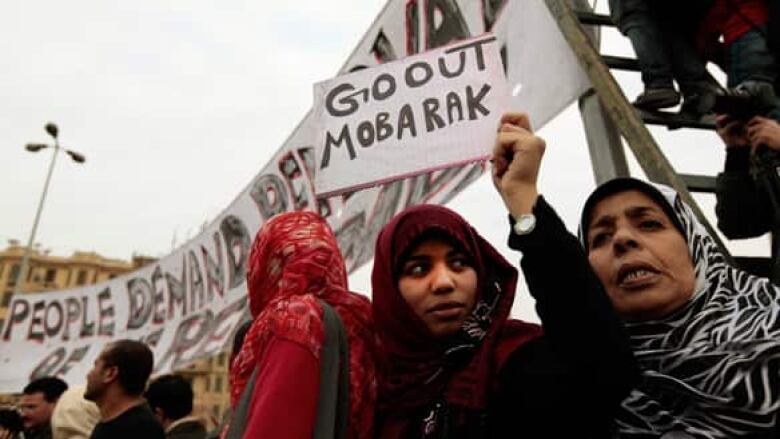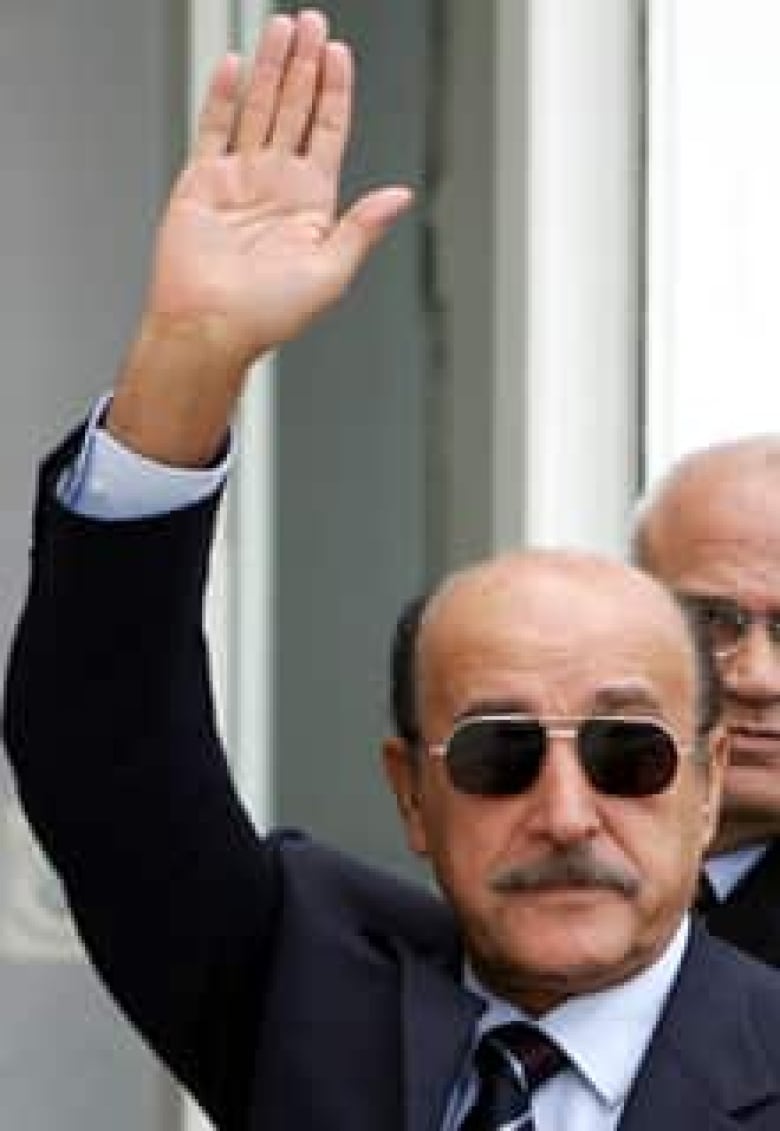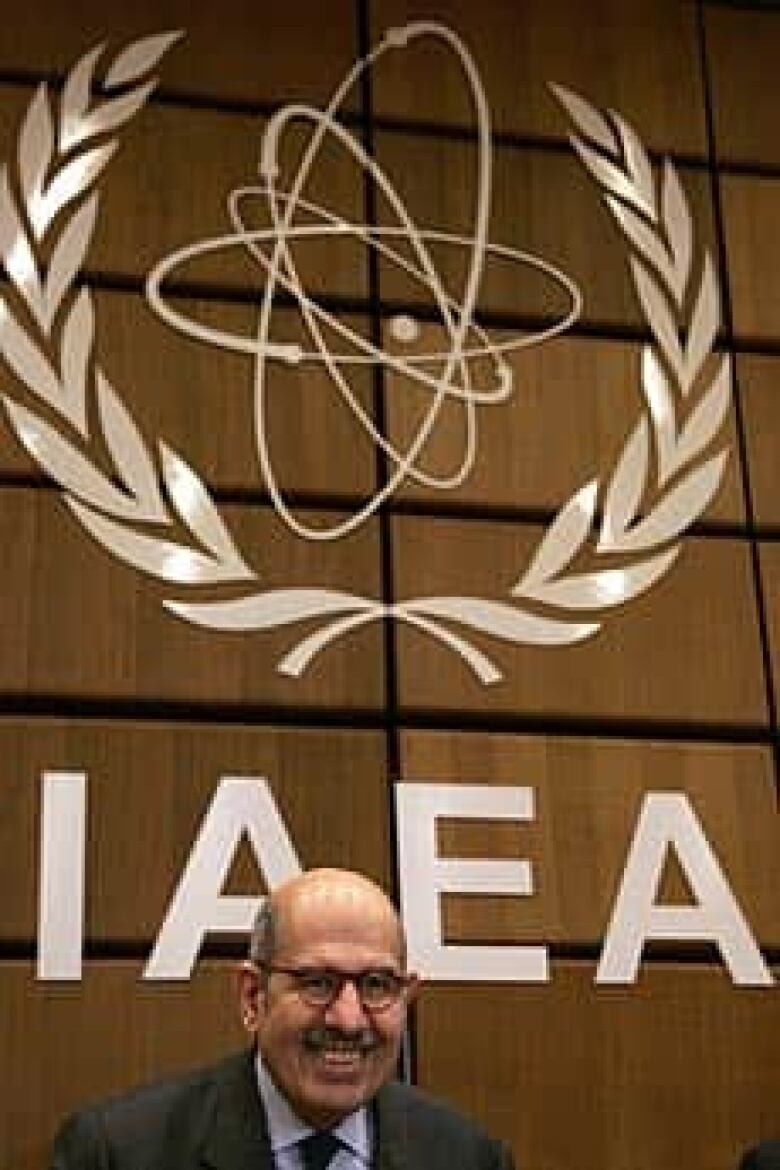After Mubarak
A look at contenders for Egyptian leadership

After 18 days of anti-government demonstrations, Hosni Mubarak has stepped down as Egyptian president and handed over power to the military, prompting questions over how the armed forces will handle the transition and who exactly will lead the country.
Mubarak has ruled Egypt for the last 30 years. He stepped aside on Feb. 11 after more than two weeks of intense anti-government demonstrations in Cairo and across the country.

Egypt's recently appointed vice-president, Omar Suleiman, confirmed Mubarak's resignation on national television, saying the longtime leader would hand over control of the country to the military's top body, the Armed Forces Supreme Council.
Mubarak's defence minister,Field Marshal Mohamed Hussein Tantawi,is the head of the council and is expected to play a major role in the transition.
The 75-year-old general joined the armed forces in 1956, serving in three wars against Israel. The long-serving defence minister was also named deputy prime minister by Mubarak after he sacked his cabinet last month in a failed attempt to quell the protests.
A 2008 cable from the U.S. embassy in Cairo, released by Wikileaks, discusses mid-level Egyptian officers "openly expressing disdain for Tantawi," and referring to him as "Mubarak's poodle."The officers complain that Tantawi is incompetent and "reached his position only because of unwavering loyalty to Mubarak," according to the cable.
The Egyptian military has played a key role in this conflict. Thought to be the largestmilitary in the Middle East and Africa, the army enjoys an exalted status in the countryand de facto control over its civil government.
The military gave demonstrators a boost early in the uprising whenitrefused to fire on protesters but has also shown a tougher side, arresting protesters with the help of the security forces.
It's not clear what roleSuleiman, a former chief ofEgyptian intelligence and ex-army general,willplay going forward. Mubarak appointed Suleiman as vice-president on Jan. 28, in an attempt to assuage growing public hostility. The 74-year-old Suleiman has been a point person for Egypt's relations with the United States, Israel, the Palestinians and Sudan, as well as a key interlocutor in the Arab-Israeli conflict.

Mohamed ElBaradei, aprominent Mubarak opponent and former director general of the International Atomic Energy Agency (IAEA), is seen by many as a potential presidential candidate. Hetold Al Jazeera that Mubarak's resignation was a "dream come true."
ElBaradei returned to a rousing welcome in Cairo on Jan. 27. After Mubarak stepped aside, he toldThe Associated Press he expects a "beautiful" transition to power, but did not say how he expects the changes to unfold, or whether he would run in the presidential elections planned for September.
During the 12 years Baradei spent at the IAEA, he confronted some of the world's most repressive regimes including those in Iran and North Korea about their nuclear capabilities. He also earned the contempt of U.S. president George W. Bush for denying the existence of weapons of mass destruction in Iraq, a stance that contributed to ElBaradei winning the Nobel Peace Prize in 2005.
Mubarak's main rival in the last presidential elections, in 2005, was Ayman Nour, leader of the liberal democratic party El Ghad ("Tomorrow" in Arabic). Nour earned seven per cent of the vote but after the election, was convicted of having forged campaign documents a charge Nour denies. His subsequent imprisonment was largely seen as a politically motivated manoeuvre on the part of Mubarak.
He was released three years into a five-year term, but Egyptian law says he is disqualified from running for political office for at least five years after the end of his original jail term.
After Mubarak's resignation, Nour told Al Jazeera that"the nation has been born again."He said he would consider running for president if there was consensus on his candidacy.
Any discussion of Egyptian politics must include the Muslim Brotherhood. Although it has been officially banned in Egypt since 1954, this Islamist group is the country's unofficial opposition. In order to circumvent their outlaw status, Brotherhood political candidates run as independents. In the 2005 election, Brotherhood "independents" won 88 of the 454 seats in parliament. Some commentators fear that if it came to power, this group led by Mohamed Badie would form a theocratic government.

ElBaradeihas shown a willingness to speak truth to power, but the question is whetherhe can alleviate the more immediate woes of the Egyptian people.
"ElBaradei is a heavyweight, to be sure," Egyptian activist Shadi Taha, campaign manager for Nour, told Time magazine. "His strength is in foreign policy. But most problems in Egypt today are internal."
The biggest folk hero in Egypt is arguably Wael Ghonim, a manager in Google's Middle East and North Africa marketing divisions who has emerged as one of the prime catalysts in theuprising. The 30-year-old internet activist created a Facebook page honouring Khaled Said,a youngEgyptian blogger beaten to death by police in June. The page also incited Egyptians to demonstrate against Mubarak. Ghonim washeld by Egyptian police for 10 days and releasedFeb. 8.
Ghonimhas since become an icon of the revolution. Many protestershave encouragedhim to run for president, butGhonim has dismissed any political aspirations.












_(720p).jpg)


 OFFICIAL HD MUSIC VIDEO.jpg)
.jpg)



























































































